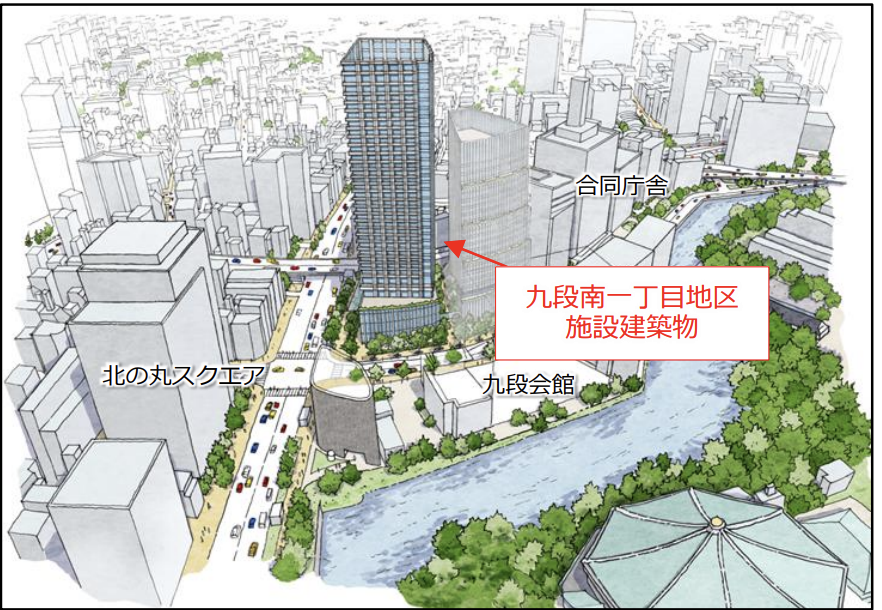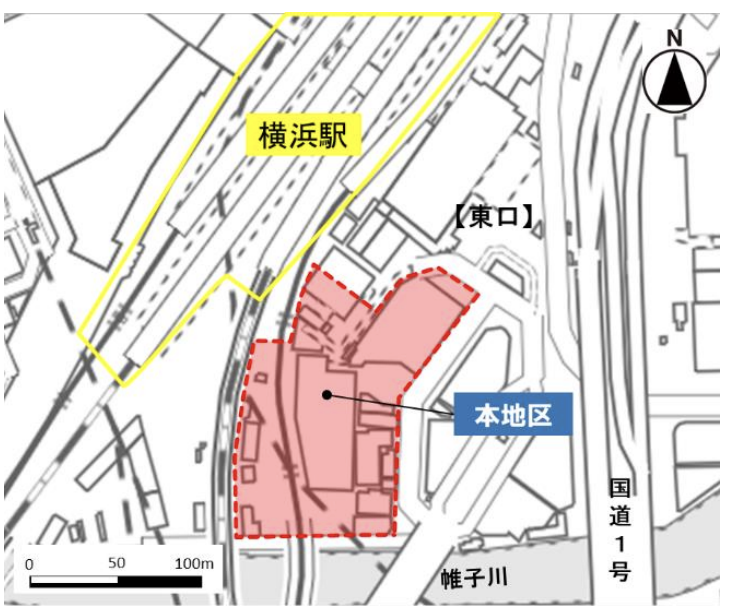Property management is a service that maintains and manages properties for lease on behalf of property owners. Specifically, the services include maintenance of buildings and facilities, management of lease contracts, rent collection, tenant solicitation and handling, complaint handling, and restoration of properties to their original condition when tenants move out. The management company stands between the owner and the tenants and plays the role of creating a safe and satisfying living environment for both parties. Especially for owners who live far away or for the next generation of owners with limited knowledge of real estate management, outsourcing to a professional management company is an indispensable means of maintaining and improving property value and ensuring stable management.
Unlike the real estate brokerage business (which acts as an agent for sales and rental contracts), the property management business does not require a license under the Building Lots and Buildings Transaction Business Law. As a result, barriers to entry have long been low, and service quality has varied from company to company. To improve this situation, in 2011 the Ministry of Land, Infrastructure, Transport and Tourism established a registration system for rental housing management companies that meet certain criteria. Furthermore, with the implementation of the law in June 2021, registration will become mandatory for contractors who manage 200 or more units, thereby ensuring the appropriateness of the market and improving reliability.
Scale and Growth Trends of the Japanese Property Management Market
Japan has a very large number of rental housing units, and the need to manage them is increasing year by year. 15.68 million privately rented housing units (privately rented houses) will be available in 2023, accounting for 28.2% of the nation's housing stock. It is estimated that about half of these units are outsourced to management companies, while the remainder are self-managed by the owners themselves. According to statistics from the Ministry of Land, Infrastructure, Transport, and Tourism, as of March 31, 2024, there were 9,482 registered rental housing management companies, and the number of rental housing units managed by these companies reached approximately 7.9 million. Before the registration system was launched around 2015, there were approximately 3,689 registered companies and 5.49 million units under management (less than 40% of the number of privately rented units at that time), but both the number of registered companies and the number of units under management have increased significantly over the past few years due to tighter laws and regulations and owners' increasing preference for outsourcing.
While there are headwind factors such as a decrease in new housing starts and a shrinking number of households due to a declining population, the market as a whole is on a gradual expansion trend due to an increase in the unit service cost per unit (management cost) for management services and a shift to outsourcing by owners who used to manage their own properties. For example, the condominium (condominium management) market is estimated to be worth approximately 820.6 billion yen in 2022 on a management fee basis, and is projected to reach 976.4 billion yen by 2030. In the background, management costs continue to rise despite a slight decrease in the supply of new condominium units, pushing up the market size. Similarly, in the rental management sector, the market is expected to remain firm as management fees rise due to the chronic shortage of labor and the spread of value-added services. In the long term, however, the market growth rate may gradually slow down as rental demand itself shrinks along with the decline in population and the number of households. Against this backdrop, consolidation through M&A and restructuring is underway in the industry, and large companies with a large number of units under management are expanding their market share. In fact, Daito Kento Group, one of the largest companies in Japan, manages approximately 1.23 million units of residential rental properties alone, creating an oligopoly structure in which the top few companies hold a vast amount of managed stock.
Examples of industry changes and efficiency gains brought about by DX
In recent years, the property management industry has been experiencing a wave of digital transformation (DX), which refers to not only the computerization of operations, but also the use of technology to fundamentally change business models and organizations themselves to create new value. It is important to note that simply digitizing paper documents is not true DX; the true value of DX can only be realized when the customer experience and business processes are redesigned through the introduction of such technology.
One of the first concrete changes in DX in property management is the computerization of contract procedures. For a long time, rental contracts required the signing of paper contracts and face-to-face explanations of important matters, but in 2022, the Building Lots and Building Transaction Business Law was revised to lift the ban on electronic contracts for rental transactions. As a result, lease contracts and management contracts can now be concluded online, making it possible to complete the entire process from property search to contract signing in a non-personal manner. The introduction of electronic contracts significantly reduces the time and cost required for contracts, and eliminates the need to pay stamp tax. According to a survey by the Ministry of Land, Infrastructure, Transport and Tourism, interest in DX promotion is growing rapidly against the backdrop of the lifting of the ban on electronic contracting, and the rate of full-scale DX initiation, which was around 22% of the industry as of 2023, is expected to increase in the future.
Next, the use of business efficiency tools and IoT technology is also notable. Until now, rental management operations have relied heavily on human resources, with much of the work involving phone calls, faxes, face-to-face interactions, and manual processing of documents. To improve this situation, cloud-based rental management systems and RPA (work automation tools) have been introduced to automate routine tasks such as rent invoicing, deposit and withdrawal management, and contract renewal notices.
Also, communication with owners and tenants is becoming more DX-oriented, with an increasing number of management companies providing dedicated portal sites for owners andapplications for tenants. For example, in cases where income and expenditure reports that were previously sent by mail can now be viewed instantly on the app, or where inquiries were handled by chat system instead of telephone, this has not only reduced printing and mailing costs, but has also contributed to preventing problems and improving service since a record of the correspondence is kept for both parties. In addition, the system has contributed to preventing problems and improving service because a record of the communication is kept by both parties.
The introduction of IoT (Internet of Things) devices is also attracting attention as a form of smart management. A typical example is smart locks, which are electronic locks that allow remote control of door locking and unlocking via a smartphone application. The widespread use of smart locks has dramatically improved management efficiency by eliminating the need to physically hand over keys when viewing a property or to change locks each time a tenant moves in or out. The risk of losing duplicate keys is also reduced, and security is enhanced by real-time access to the room entry/exit history. In addition, various IoT sensors (temperature, humidity, human detection, water leak detection, etc.) are installed in the property, allowing for around-the-clock remote monitoring. By analyzing the data collected by the sensors, building usage can be visualized, leading to energy savings through automatic air conditioning control and preventative maintenance such as early detection of water leakage. In the long term, it can be expected to reduce operating costs and maintain and improve asset value.
The expansion of online and VR previews has also changed the industry: virtual previews using 360-degree cameras and VR technology allow prospective tenants living far away to check the atmosphere of a property in detail from the comfort of their own home. While face-to-face customer service is difficult due to the Corona disaster, online previews have quickly become popular, reducing the burden of travel time and schedule adjustments and expanding the customer base that can preview properties nationwide. In addition, a system of self-previews (unattended previews) linked to smart locks has emerged. By issuing temporary digital keys to applicants and allowing them to enter a property at a specified time without staff present, the system has both increased the efficiency of the viewing response and improved customer convenience.
What these examples of DX implementation have in common is that they have simultaneously realized labor savings and improved service quality. In fact, according to a survey, more than 80% of real estate companies that have implemented DX feel that "operational efficiency has improved.
On the other hand, the real estate industry as a whole is still in the process of adapting to DX, and is still lagging behind other industries. Small and medium-sized real estate companies in particular lack IT resources, and there are still many business processes that have not been digitized. However, DX is a trend that cannot be avoided, and in order to meet the needs of a new generation of owners and tenants, further use of technology and business transformation will be required in the future.
Human Resource Requirements and Training/Hiring for DX
The biggest key to promoting DX is human capital (human resources). Even if digital technology is introduced, it is ultimately "people" who master it and make it take root in the organization, and success will not be possible without human resources who can adapt to the DX era. However, many veterans in the real estate industry have been engaged in analog operations for many years, and there is a chronic shortage of personnel with specialized skills in IT and data utilization. According to one survey, 55% of large real estate companies cite "lack of DX personnel" as an issue, and 21.2% of small companies feel the same way. The industry as a whole recognizes the lack of digital human resources as a major barrier to DX promotion, and how to resolve this issue is a pressing issue.
The ideal candidate for the DX era should not only be IT-savvy, but also have a deep understanding of real estate operations and data-oriented problem-solving skills. For example, when introducing AI or IoT to property management, knowledge of real estate operations is essential to accurately grasp the issues onsite and determine the points where technology can provide solutions. At the same time, literacy in using new tools and skills in making decisions based on data are also required. Because personnel with this combined skill set are scarce, companies must strive to secure such personnel both by reskilling existing employees and recruiting from outside the company.
For existing employees, it is effective to encourage them to participate in in-house training programs and external seminars to educate them on how to use IT tools and the basics of data analysis. In addition, there are an increasing number of cases where young employees are entrusted with projects or empowered to form in-house DX teams in order to develop them as leaders in DX promotion. Some companies have established a Chief Digital Officer (CDO) at the management level to oversee digital strategies and promote DX projects across departments. In terms of external recruitment, companies are hiring mid-career workers from the IT and consulting industries, strengthening the hiring of new graduates of the digital native generation, and partnering with real estate tech companies to bring in specialized knowledge.
The key is not only to secure skilled individuals, but also to foster a digital mindset throughout the organization. DX personnel are needed not only in the DX promotion department, but also in all departments, including sales, administration, and technology. In order to improve services for the next generation of owners, it is necessary to establish a system that supports DX from the aspect of human resource strategy.
Practicing DX at INA&Associates and providing value to clients
INA&Associates is one of the companies that are truly implementing DX to enhance client value. One example is our rental property management business, which we launched in 2021. Traditionally, the monthly management fee for rental property management is said to be around 5% of the monthly rent, but we offer a low and clear fee of 1,000 yen per parcel per month. DX is the key to this flat-rate service, which has been realized through the following advanced efforts.
-
Complete digitization of contracts: All necessary contract procedures, such as lease and management contracts, are completed online. By eliminating paper contracts and the need for paper stamps, and utilizing electronic contracting systems such as CloudSign, both owners and tenants can quickly conclude contracts even from remote locations. The elimination of the need to mail contract documents or go through face-to-face procedures has dramatically improved the speed and convenience of contract signing.
-
Real-time rent payments: In the past, a management company would collect rent payments from tenants, deposit them, and remit them to the owner. This eliminates delays in rent payment and allows owners to receive their take-home pay in a timely manner. The management company also reduces the risk and hassle of holding client funds, resulting in a more transparent and secure operation.
-
24-hour tenant support: A 24-hour call center dedicated to tenants has been set up to provide immediate response to emergency problems during the night or on holidays. The ability to respond to emergencies such as water leaks and lost keys by professional staff enhances tenants' sense of security, which in turn helps to foster trust in the owners. Contacts received by the call center are recorded and shared on a digital system, and information is linked among the staff in charge, leading to prompt problem solving.
-
Open contractor selection and cost transparency: We do not force owners to select specific contractors for restoration work or facility maintenance. With the owner's approval, we flexibly select contractors and, if necessary, place orders for work at reasonable prices based on competitive quotations. This eliminates the traditional fear of being forced to pay for expensive repairs designated by the management company, and provides a service that is cost-effective and satisfactory.
All of these measures were developed based on requests received from property owners. In response to these issues, INA&Associates has developed a new management model, including the development of a proprietary system. As a result, we are providing low-cost, highly transparent, and reliable rental management support through the power of DX, giving shape to the next generation of owners' desire for such services.
We are also committed to disseminating information on real estate tech and DX, actively seeking solutions to industry issues and sharing our knowledge. From human resource development to service design, we are consistently pursuing management that is in tune with the digital age.
Conclusion
In this report, we have explained in detail the basics of the real estate management industry, market trends, transformation through DX, and the human resources and specific examples that support this transformation. For the next generation of property owners who inherit real estate from their parents, it is important to understand the latest trends in the industry and find a reliable partner in order to manage their assets with peace of mind, without having to worry about paper contracts and complicated procedures.
The property management industry is now at a major turning point, with DX developments dramatically improving operational efficiency and service quality, and giving rise to new business models that are not bound by conventional wisdom. With these changes as a tailwind, it would be wise for owners to proactively reap the benefits of digital utilization. For example, a management service that allows users to complete contracts and reports online and monitor the status of their properties from their smartphones will not only save time and effort but also maximize asset value.
On the other hand, the essence of DX is not simply the renewal of tooling, but the pursuit of "what is better real estate management. Management companies are also required to reform themselves, including human resource development, and the value they provide to owners will be further enhanced as their efforts bear fruit.
I would like to encourage the next generation of owners to take on the challenge of managing their rental properties with the latest technology and with the advice of trusted experts. Let's work together with property management professionals to successfully manage assets in the DX era and pass on the valuable real estate inherited from our parents to the next generation in an even more valuable form.

Daisuke Inazawa
Representative Director of INA&Associates Inc. Based in Osaka, Tokyo, and Kanagawa, he is engaged in real estate sales, leasing, and management. He provides services based on his extensive experience in the real estate industry. Based on the philosophy that “human resources are a company's most important asset,” he places great importance on human resource development. He continues to take on the challenge of creating sustainable corporate value.

.png)













